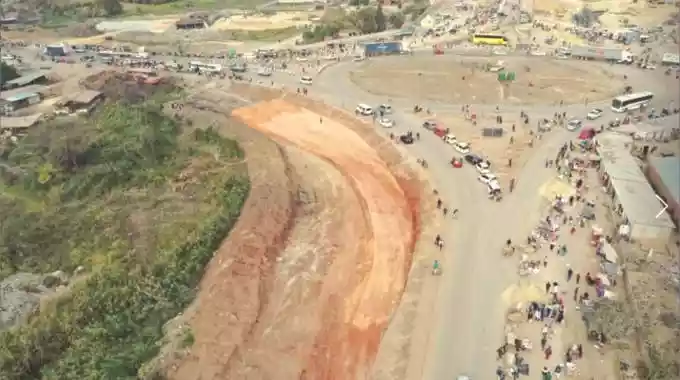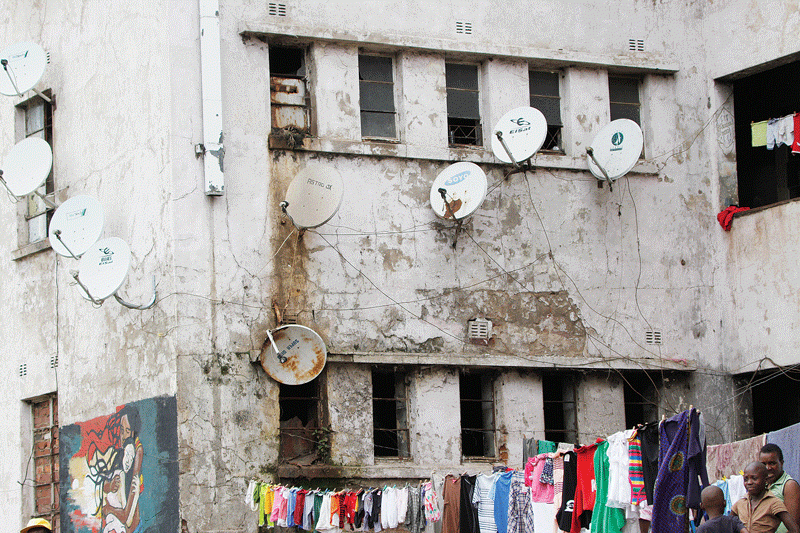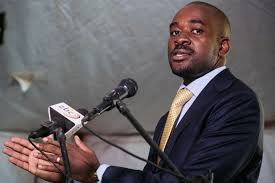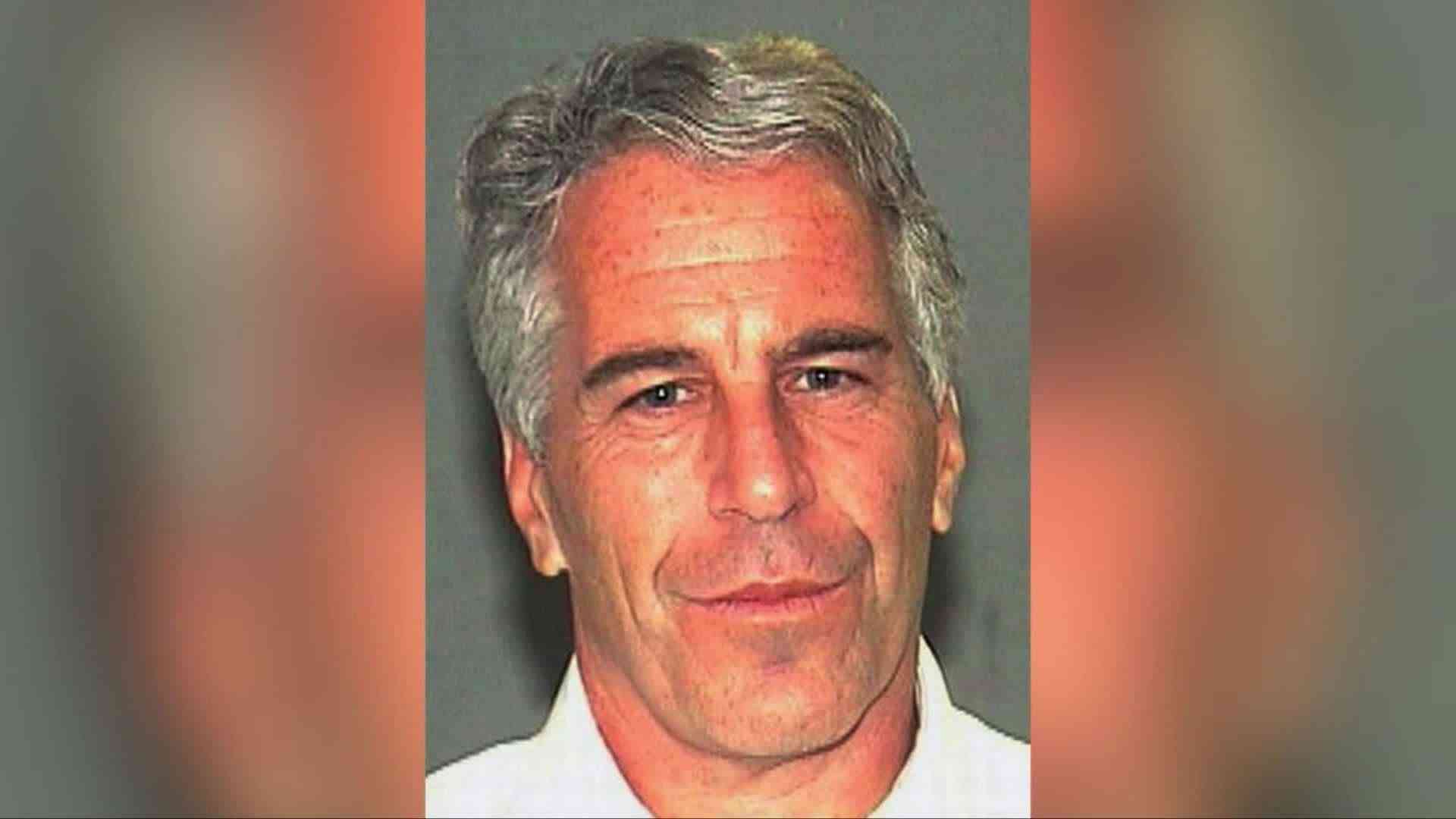
The next time you hear President Emmerson Mnangagwa speak ill of corruption, show him the egg or even two. He bluffs too much about fighting corruption.
Same goes for his runner, Mthuli Ncube and the rest of the cohort.
Thing is, these chaps simply lack the capacity for shame, seeing how dirtily they do their business and never seem to mind a single thing about it.
This past week, we were back to the future on one of the projects that the post-Mugabe dispensation has embarked on. The Mbudzi roundabout interchange project.
The red flag was already out at three-quarter mast, so to speak, when it was revealed that the total cost of the project had possibly been inflated.
The Durban interchange, probably Africa’s biggest, had been built at some US$77 million.
But the Mbudzi one, far much smaller in every respect, was pegged at US$10 million more.
Things are now making better sense following yet another revelation that government borrowed US$88 million from a private company to finance the Mbudzi project.
- We will rule forever: ED says
- AHFOZ Annual Conference roars to life
- Lafarge account garnished over debt
- Chiwenga sucked into Lupane chieftainship dispute
Keep Reading
A recent general government notice number 131B of 2023 tells us that in late 2021, the government secured the loan from Fossil Mines, which is part of the Fossil Group.
This group also includes Fossil Contracting, which was given the contract to build the Mbudzi interchange and Fossil Agro.
The Fossil Group now has the major stake in Lafarge Cement and yet another stake in Great Dyke Investments, which, among other things, is dabbling in platinum.
We hear that Obey Chimuka, Kuda Tagwirei’s business sidekick, leads the group.
And Kuda Tagwirei is that guy who is so connected to the president, Vice President Constantino Chiwenga and what, what. . .
He owns Sakunda Holdings that was given the mega-million command agriculture contract that, according to the auditor general, had lots of governance issues.
Back to the loan. This loan, according to the agreement between Fossil Mines and the government as represented by Mthuli Ncube, the Finance minister, was to be repaid using the London interbank rate and the financier “shall oversee the project implementation and disburse directly towards the project implementation”, according to the general notice.
You heard it. Now, Fossil Contracting—part of the Fossil Group—is the implementer, or one of the major implementers, of the Mbudzi project, as a component of the larger Harare-Beitbridge highway rehabilitation project.
What this then says is that Fossil Mines availed a loan to fund a project being implement by its sister company, Fossil Contracting. More about this later.
Meanwhile, let’s ask basic questions. The first relates to the timing of the general notice.
The notice has just been released.
The loan agreement was done in late 2021. That means the general notice is coming more than a year after.
For the what? Why has it taken Mthuli so long to release the notice?
What was being hidden all along and what has happened now to force the release of the notice?
It certainly isn’t because of bona fide oversight that it has taken so long to do the general notice. Mthuli and the government that he represents just didn’t want the world to know that they were doing dirty things on the Mbudzi project.
If we had learnt about the loan and the Fossil Contracting contract early enough, there would have been so much noise the contract might have been cancelled. But it’s a fait accompli now, more or less.
The project has moved, and reversing the contract will be a hard thing to achieve. That was the plan — to delay public knowledge of the loan as far as possible.
Number two, the use of the London interbank facility. Here is the Zimbabwean government getting into an agreement with a Zimbabwean company led by Chimuka, a Zimbabwean buddie of a discredited Zimbabwean businessman, Tagwirei.
Zimbabwe uses a Zimbabwean interbank facility. Yet, in all its own wisdom, this Zimbabwean government decides to use a British interbank platform as the basis for the loan repayment. Who does that?
So, it remains unclear what the Mnangagwa administration and its business cartel were trying to achieve by pegging the loan repayment on the London interbank platform.
But whatever the case, it has shown that this government has no faith in its own systems and structures, unless these guys are smarter than we have seen so far.
Now to the other burning governance questions. Did the Zimbabwean government not allow itself to be bribed by Fossil? Why did it decide to get a loan from a company that, obviously, was going to have direct or indirect interests in the Mbudzi project?
Clearly, by December 2021 when the loan deal was done, Fossil Contracting had already expressed interest in being part of the project. If, in fact, it hadn’t already bagged the contract by midnight candlelight.
In short, getting a loan from Fossil Mines becomes a classic case of conflicted interests, and for the government to wade into the loan agreement with all its eyes open like that betrays one thing. Corruption.
That means Mthuli acted corruptly. Mnangagwa and Chiwenga acted corruptly too because there is no way in which such a deal would be sealed without their knowledge. And it doesn’t help the two members of the presidium given the fact that they have been linked to the financier indirectly.
Tagwirei is a crony of both Mnangagwa and Chiwenga, having even made multi-million dollar donations to the latter. And Tagwirei is linked to Chimuka, the Fossil boss.
I don’t want to call this state capture by Tagwirei and Chimuka. It’s pretty like a cartel where all the above are involved for selfish and collective gain.
And where on earth does it happen that a financier is sent to supervise its own sibling? Because, you see, that’s what you see in the general notice.
Fossil Mines as the financier is supposed to supervise the implementation of the Mbudzi project where Fossil Contracting is an implementer.
Do you honestly believe that Fossil Mines is going to be objective? If anything, the financier will do whatever it can to ensure that the implementer gets the best advantage out of the whole deal. The goats belong to the same pen.
By the way, this could just be the tip of the iceberg. By late 2021, the Fossil Group had already been favoured with the highest number of major public contracts among all available contractors. A whole 15 of them for just one outfit.
The coincidence is telling. It’s not as though Fossil is the best commercial entity that you will find within the Zimbabwean borders and beyond.
When you see how closely connected Fossil is to the ruling elite, you get forgiven for smelling a big rotting fish or something worse.
In any case, what’s the reason why the government settled on Fossil Mines as the financier ahead of more legitimate loaners like banks? This is an important question because, in September 2021, the secretary for Transport ministry, Tedious Chinyanga had indicated that they were in discussions with a financial institution — unnamed, though— to fund the Mbudzi project. He even said the institution had expressed interest in financing the interchange.
At the same time, we already knew that the government was working through the Infrastructure Development Bank of Zimbabwe and Zimre on the other Harare-Beitbridge highway sub-projects. Seeing as it is that Fossil Mines is not a financial institution.
Acknowledging that IDBZ and Zimre were on the government plan. Acknowledging also that Zimbabwe has several capable financial institutions, the unnamed one included. Why, on earth, did the government settle on a hazy mining entity called Fossil Mines?
It’s been said already. This is just a tip of the berg. We will be forced, then, to ask why the Mnangagwa administration has tended to place most of its weight on this mix of infrastructural projects. Is it for national development or for the village of eaters?
- Tawanda Majoni writes in his personal capacity and can be contacted on [email protected]











